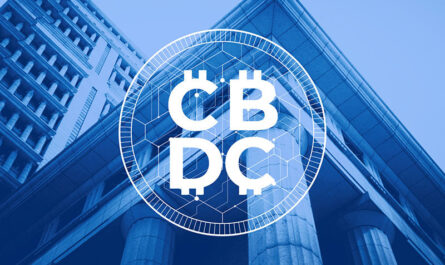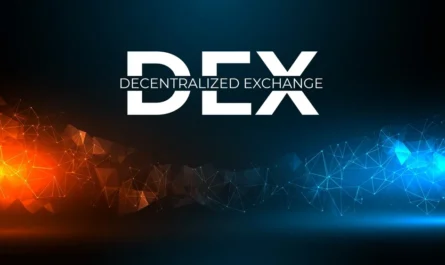Bitcoin, a pioneering cryptocurrency, has caught the attention of many around the world. The question of who can legally buy Bitcoin is not always straightforward. Age restrictions for purchasing Bitcoin are crucial, as they help prevent financial risks that minors might not fully understand.
Knowing these age requirements is essential for compliance and responsible trading. This guide aims to clarify the age at which individuals can engage in buying Bitcoin, ensuring that interested parties approach cryptocurrency purchases informed and within legal boundaries.
Page Contents
Legal Age Requirements
The age at which people can legally purchase Bitcoin varies worldwide, generally aligning with the legal definition of adulthood, which in most jurisdictions is 18 years. This benchmark ties to the capacity to enter into binding contracts, which buying Bitcoin would entail.
However, there’s no single international law governing the purchase of cryptocurrencies, leading to a patchwork of regulations across different nations. Some countries may impose stricter rules, while others operate in a more relaxed legal framework. It is vital for potential buyers to understand the specific legal age requirements in their region to avoid any legal repercussions.
United States
In the United States, the minimum legal age to buy Bitcoin is 18, in accordance with the legal adulthood age. This age restriction is tied to the legal capacity to enter into contracts, as engaging in cryptocurrency transactions is considered a contractual activity. While searching for opportunities like free bitcoin mining sites may seem appealing, it is important for users to be aware of age restrictions as these sites also require adherence to legal age requirements.
Although federal law is consistent on this matter, state-specific laws also play a role in the regulation of cryptocurrencies. It’s worth noting that these state regulations do not typically alter the age requirement but might impose additional verification processes or purchasing limits. Prospective buyers in the U.S. should stay informed about both federal and state-level guidelines to ensure they’re operating within legal confines.

The United Kingdom
In the United Kingdom, individuals must be at least 18 years old to legally buy Bitcoin. This requirement is in line with the country’s legal stance on entering into contracts and financial transactions.
The UK has taken a proactive stance on cryptocurrency regulation, establishing a framework that aims to prevent money laundering and protect consumers, which includes stringent age verification processes. There is no flexibility in this requirement; regardless of parental consent, one must reach the age of majority to engage in Bitcoin transactions to ensure they’re legally recognized and protected under UK financial laws.
European Union
The European Union (EU) presents a complex landscape for Bitcoin purchases due to varying national regulations among member states. While there is no standard EU-wide law setting the age limit for buying Bitcoin, most EU countries recognize 18 as the legal threshold for such transactions.
This is consistent with the age of majority in most member countries. EU residents must navigate not only their own country’s laws but also the evolving landscape of EU-wide regulations concerning cryptocurrency, which can impact age verification and other requirements related to Bitcoin purchases.
Canada
Canada requires individuals to be 18 or 19 years old to buy Bitcoin, depending on the province. This is in line with the age of majority, which is 18 in most provinces but 19 in others like British Columbia, Nova Scotia, and New Brunswick.
Canadian regulations emphasize the need for proper identification and adherence to the legal age limit for cryptocurrency transactions. Provincial variations slightly complicate the process, but they align with other legal age-related activities within those jurisdictions, maintaining a coherent legal framework for residents when engaging in Bitcoin purchases.

Australia
In Australia, individuals looking to buy Bitcoin must be 18 years of age, matching the country’s age of majority. Australian law requires cryptocurrency exchanges to verify the age of their customers as part of their Know Your Customer (KYC) obligations.
While federal regulations provide the foundation for cryptocurrency trading, there may be state-specific laws and guidelines that also apply. These can influence how exchanges operate and enforce age restrictions, ensuring that only eligible individuals participate in the trading of Bitcoin.
Asia
Across Asia, age requirements for buying Bitcoin can vary considerably, reflecting the diverse legal systems and cultural attitudes toward finance and technology. Some countries, like Japan, have clear regulations that set the minimum age at 18, aligning with the age of contractual capacity.
Others may have less clear-cut laws, or cryptocurrency may operate in a grey area where official age restrictions are not explicitly defined. It’s imperative for individuals in Asian countries to seek out information on their local laws to avoid legal complications when attempting to buy Bitcoin.
Risks of Underage Bitcoin Purchases
Buying Bitcoin underage can pose significant risks. Without the maturity and legal standing to fully understand the implications of such transactions, minors may face financial loss, fraud, or breach of contract without the same recourse as adults. Age restrictions help safeguard young individuals from complex financial decisions that could impact their future.
These rules are in place to protect not only the individual minor but also the integrity of the financial system, ensuring that all participants are adequately informed and legally accountable for their transactions.

How Age is Verified
Cryptocurrency platforms enforce age restrictions by verifying the user’s age. When a person signs up, they typically must provide government-issued identification, like a passport or driver’s license. This process ensures that the individual meets the age requirement set by the platform and complies with legal standards.
Some exchanges use additional verification methods, such as credit checks or the requirement to link a bank account, which further implies that the user is of a certain age because these accounts require age verification to set up.
Verification processes not only comply with legal age requirements but also with broader regulatory measures designed to prevent fraud and money laundering.
Parental Consent
Can parental consent bypass age restrictions for buying Bitcoin? Generally, cryptocurrency platforms do not accept parental consent as a substitute for meeting the age requirement. The primary reason is the legal and financial responsibilities involved in trading cryptocurrencies, which are considered too complex for minors.
In some jurisdictions, however, there might be ways for parents to include their children in cryptocurrency investments, such as setting up a custodial account. These accounts allow parents to manage assets on behalf of their minors but come with their own set of rules and regulations.

Conclusion
Understanding age restrictions for buying Bitcoin is essential for legal compliance and personal protection. Across the globe, the typical age to legally purchase Bitcoin is 18, aligning with the age of majority.
Verification methods on platforms enforce these restrictions, ensuring that underage individuals do not inadvertently break the law. While the landscape of cryptocurrency is ever-evolving, one constant remains: adhering to legal requirements is crucial for the safety and integrity of the market.






